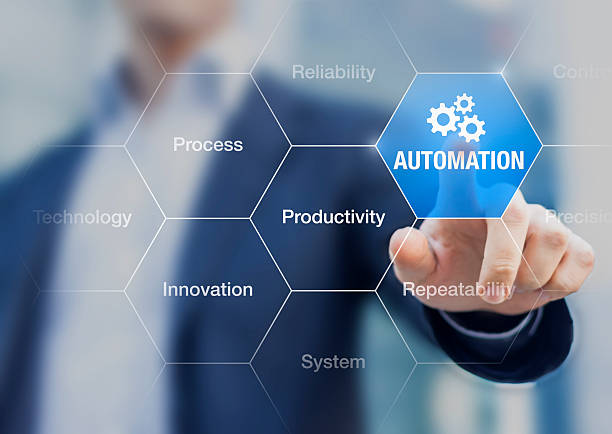Automation is the future of work. Automation tools are changing the way businesses operate and are becoming increasingly popular in today’s fast-paced world. Automation technology is helping businesses to streamline processes, increase efficiency, and save time and money. In this article, we will explore the future of automation tools and what it holds for businesses of all sizes.
What are Automation Tools?
Automation tools are software programs designed to automate routine, repetitive tasks, and processes. They can be used for a wide range of tasks, such as data entry, customer service, and marketing. Automation tools can be used to automate anything that can be done through a computer, such as emailing, scheduling, and even social media management.
Benefits of Automation Tools
There are numerous benefits to using automation tools. The following are just a few of the most significant advantages:
- Time Savings: Automation tools can save a significant amount of time by automating routine, repetitive tasks. This frees up employees to focus on more important, strategic tasks. Such as TinyTask is a simple and lightweight software tool. You should download TinyTask Software for time-saving.
- Increased Efficiency: Automation tools can increase efficiency by streamlining processes and reducing errors. They can also help to eliminate the need for manual data entry and other time-consuming tasks.
- Improved Customer Service: Automation tools can help businesses to improve customer service by providing quick, accurate responses to customer inquiries.
- Cost Savings: Automation tools can save businesses money by reducing the need for manual labor and increasing efficiency.
The Future of Automation Tools
The future of automation tools is bright and exciting. As technology continues to advance, automation tools will become even more sophisticated and powerful. The following are just a few of the ways that automation tools are likely to change in the future:
- Artificial Intelligence (AI): AI will play an increasingly important role in the future of automation tools. AI algorithms will be able to analyze data, make predictions, and automate complex tasks.
- Integration with Other Technologies: Automation tools will become more integrated with other technologies, such as the Internet of Things (IoT), virtual reality (VR), and augmented reality (AR).
- Smarter Automation: Automation tools will become smarter and more intuitive, allowing businesses to automate complex tasks with ease.
- Greater Accessibility: Automation tools will become more accessible to businesses of all sizes, including small businesses and startups.
Importance of Automation Tools in Today’s Business Landscape
The business landscape is constantly evolving, and companies need to adapt to stay ahead of the competition. Automation tools play a crucial role in this adaptation, helping businesses to streamline processes, increase efficiency, and reduce costs. In today’s fast-paced world, automation tools are essential for businesses that want to remain competitive and succeed in the long term.
One of the key advantages of automation tools is their ability to automate routine, repetitive tasks. This can include anything from data entry and customer service to marketing and sales. By automating these tasks, businesses can save time and focus on more important, strategic tasks. This can lead to increased efficiency and improved productivity, giving businesses a competitive edge.
Another important benefit of automation tools is their ability to provide quick, accurate responses to customer inquiries. This is particularly important in today’s world, where customers expect fast, high-quality service. Automation tools can help businesses to meet these expectations by providing quick, accurate responses to customer inquiries, improving customer satisfaction and loyalty.
In addition to these benefits, automation tools can also help businesses to reduce costs. By streamlining processes and reducing errors, businesses can save money and allocate their resources more effectively. This can be particularly important for small businesses and startups, which often have limited resources and need to maximize their efficiency in order to succeed.

The Future of Work and Automation Tools
The future of work is rapidly changing, and automation tools will play a significant role in this transformation. As technology continues to advance, automation tools will become even more sophisticated and powerful, changing the way that businesses operate and the skills that employees need to succeed.
For example, artificial intelligence (AI) will play an increasingly important role in the future of automation tools. AI algorithms will be able to analyze data, make predictions, and automate complex tasks. This will enable businesses to automate more complex processes, reducing the need for manual labor and increasing efficiency.
In addition, automation tools will become more integrated with other technologies, such as the Internet of Things (IoT), virtual reality (VR), and augmented reality (AR). This will allow businesses to automate even more complex tasks and provide even more advanced solutions to their customers.
As automation tools continue to evolve, it will be important for businesses and employees to adapt to these changes. Employees will need to develop new skills and learn how to work effectively with automation tools, while businesses will need to invest in new technologies and training programs to stay ahead of the competition.
Also Read: Latest Trends In Custom Software Application Development
Final Thoughts
In conclusion, the future of automation tools is bright and exciting, offering numerous benefits to businesses of all sizes. Automation technology is changing the way businesses operate and will continue to play a significant role in the future of work. Businesses that embrace automation tools and invest in new technologies and training programs will be well-positioned to succeed in the years ahead.








